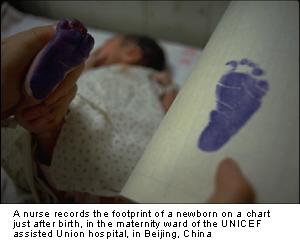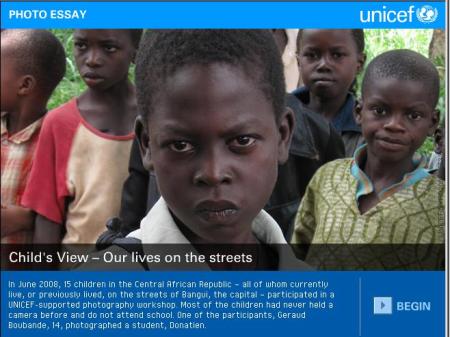Pandemic Threat – Now Swine – Flu
By Juan Chamero, from Caece University at Buenos Aires, Argentine, April 15th 2009
Subject: epidemics, pandemics, plagues
Info source 1: Swine influenza frequently asked questions, from WHO, World Health Organization, 25th April 2009
 We suggest to carefully read two items of this authoritative FAQ:
We suggest to carefully read two items of this authoritative FAQ:
What are the implications for human health?
Outbreaks and sporadic human infection with swine influenza have been occasionally reported.
Generally clinical symptoms are similar to seasonal influenza but reported clinical presentation ranges broadly from asymptomatic infection to severe pneumonia resulting in death.
Since typical clinical presentation of swine influenza infection in humans resembles seasonal influenza and other acute upper respiratory tract infections, most of the cases have been detected by chance through seasonal influenza surveillance. Mild or asymptomatic cases may have escaped from recognition; therefore the true extent of this disease among humans is unknown.
What about the pandemic risk?
It is likely that most of people, especially those who do not have regular contact with pigs, do not have immunity to swine influenza viruses that can prevent the virus infection. If a swine virus establishes efficient human-to human transmission, it can cause an influenza pandemic. The impact of a pandemic caused by such a virus is difficult to predict: it depends on virulence of the virus, existing immunity among people, cross protection by antibodies acquired from seasonal influenza infection and host factors.
Info source 2: Mexico Takes Powers to Isolate Cases of Swine Flu, By MARC LACEY and ELISABETH MALKIN, From NYT, April 25, 2009
White-coated health care workers fanned out across the international airport here to look for ailing passengers, and thousands of callers fearful they might have contracted the rare swine flu flooded government health hot lines. Health officials also began notifying restaurants, bars and nightclubs throughout the city that they should close.
Of those Mexicans who did go out in public, many took the advice of the authorities and donned the masks, which are known here as tapabocas, or cover-your-mouths, and were being handed out by soldiers and health workers at subway stops and on street corners.
“My government will not delay one minute to take all the necessary measures to deal with this epidemic,” Mr. Calderón said in Oaxaca State during the opening of a new hospital, which he said would set aside an area for anyone who might be affected by the new swine flu strain that has already killed as many as 81 people in Mexico and sickened more than 1,300 others.
Info source 3: PANDEMIC HYSTERIA: towards Tamiflu overstocks?. See also Poop Pandemic and WebMed Swine-Flu Faq
Info source 4 (Asian): Health Authorities Move to Contain Swine Flu Threat, from Don-A, South Korea, April 27th 2009
The National Veterinary Research and Quarantine Service said, “Though influenza viruses are not transmitted through food, consumers are deeply worried about the safety of pork. We will conduct tests for the virus on all U.S. and Mexican pork imports, including those not yet inspected.”
Of pork imported this year, 208 tons from Mexico and 28,726 tons from the United States passed quarantine inspection as of the end of last month.
All travelers arriving from the United States and Mexico will be checked for fever and be tested for the swine flu virus. Those who enter Korea from a third nation after traveling to North America will undergo health inspection.
Mexico is put on high alert in the wake of a new strain of swine flu that has killed 81 people and infected 1,324. The World Health Organization held an emergency meeting Saturday to declare a public health emergency of international concern.
Other countries are scrambling to protect their people from the deadly disease by conducting quarantine inspections at all points of entry.
The outbreak was first reported April 13 and has spread. Mexico City’s 30,000 schools and those in two other Mexican states and San Luis Potosi will remain closed until May 5. Public events expected to draw large crowds of people were also canceled.
World Health Organization Director-General Margaret Chan warned that swine flu could evolve into a global pandemic. She convened Saturday the first meeting of her organization’s emergency committee comprised of influenza experts from around the world in Geneva.
Comment: The danger is real, planetary and next to all of us. However more than ever we all have to be rightly informed reading authoritative sources, mass media and people opinions. This danger should prevent us from being too light when judging crisis. World crisis do not occur of a sudden without a progressive series of warnings signs and alarms and even more: this progression tends to accelerate “exponentially” before the failure of the “system in this case The Gaia System, our planet. Even plagues and all types of epidemics arrive progressively.
Categories: people health, pandemics, people diseases, plagues
Tags: epidemics, pandemics, flu, swine flu, WHO, World Health Organization, outbreaks, influenza, quarantine, vaccines, vaccination, gaia, pandemic risk, pandemics threat, Margaret Chan, Mark Lacey, pandemic hysteria, global pandemics, health emergency, swine influenza, swine flu threat, seasonal influenza, Calderón,


 Source:
Source: 